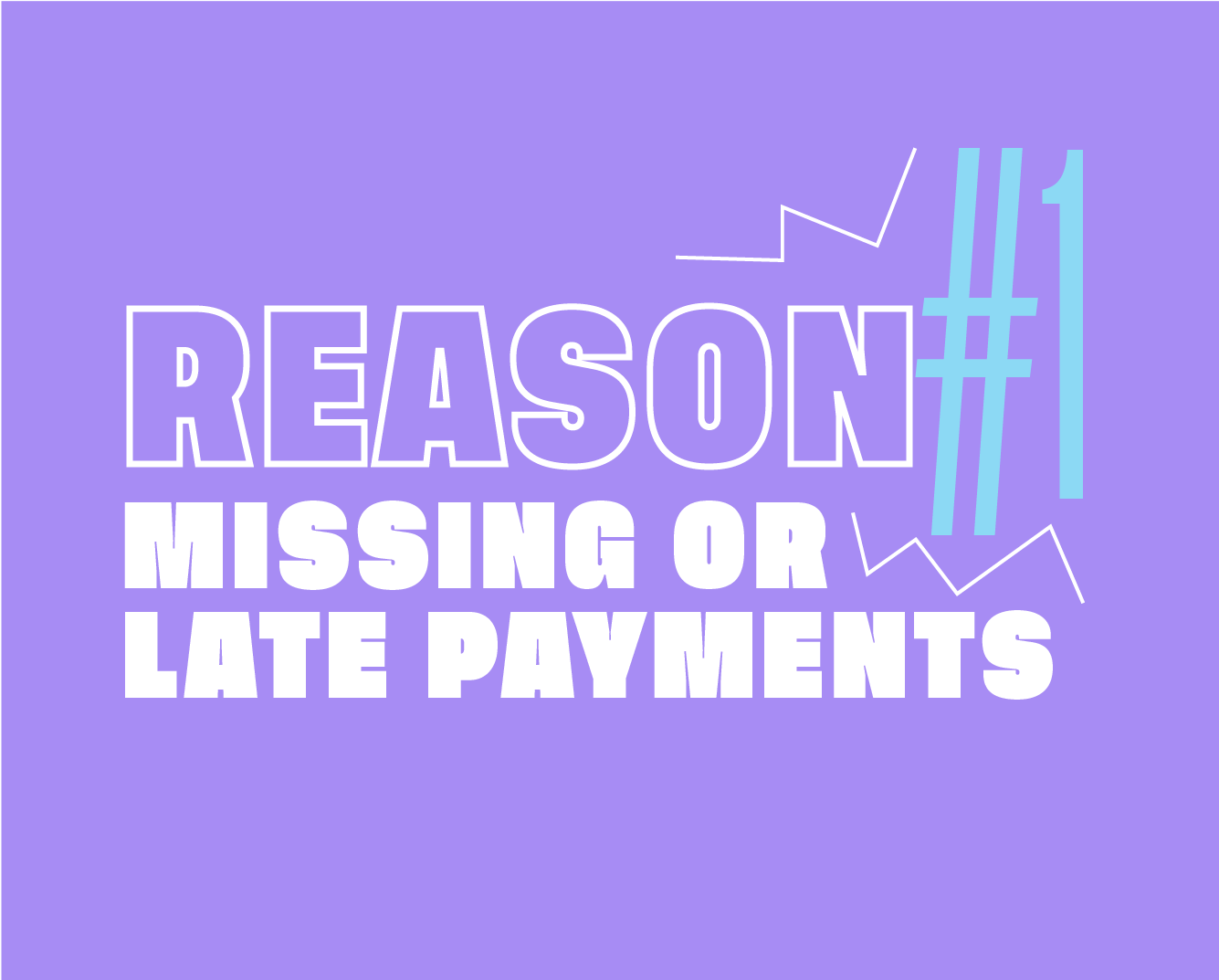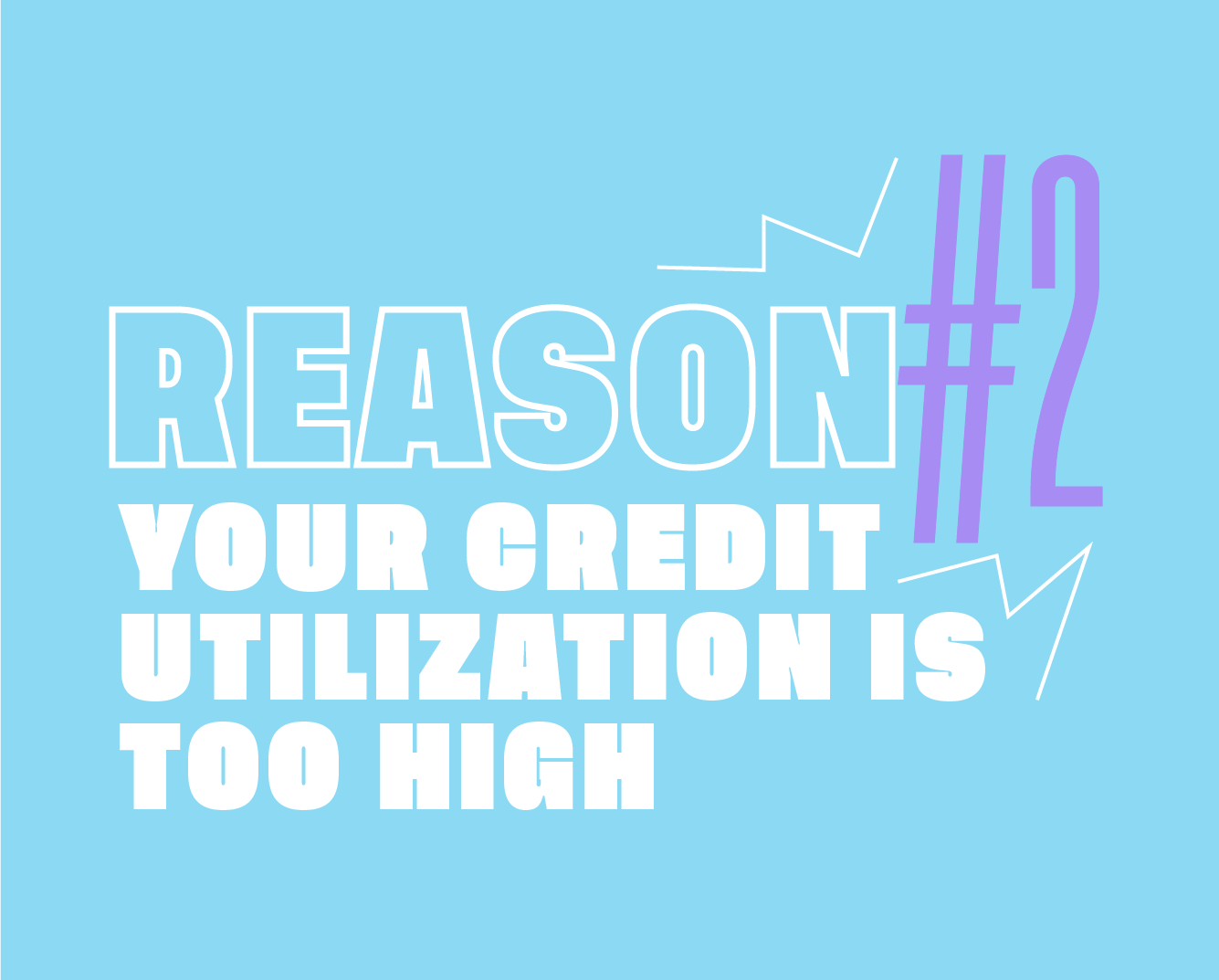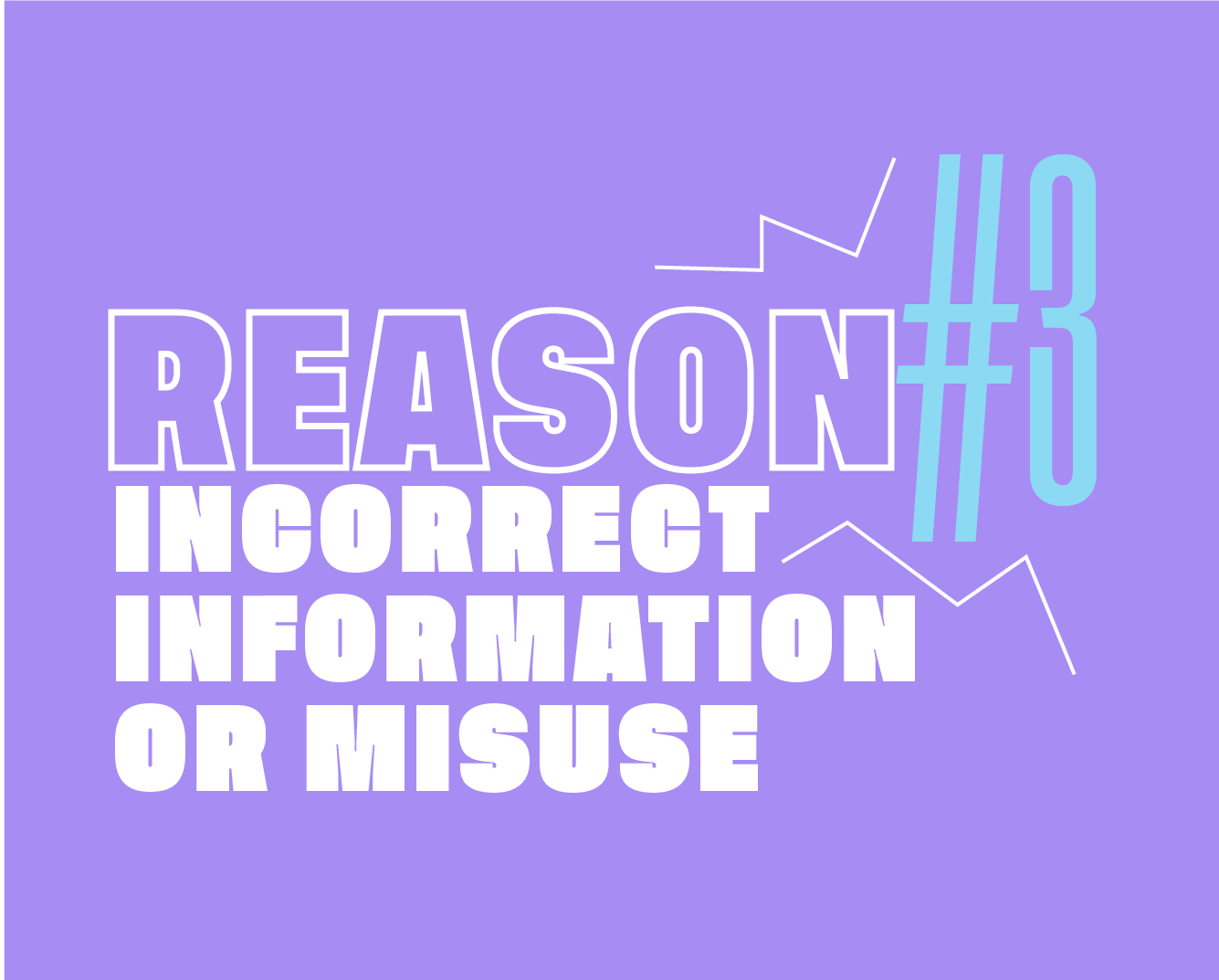3 Reasons Your Credit Score is Dropping
Credit scores underpin the entire credit system in Canada, including everything from credit cards to big loans and mortgages. In order to obtain any such loan, you must be considered trustworthy enough to repay it. The measure? Your score!
But there’s a problem: it takes time and attention to get your credit score to a great place. Small mistakes, like missing a payment, or being denied for a loan, can cause your credit to take a serious hit.
Damage like that can take months to undo.
If you find yourself searching “why is my credit score dropping?” this month, check for these common occurrences and get to work turning that (credit) frown upside down (into a happy credit, you see).

This is the most common source of credit score dips across Canada, and it can have the biggest impact on your score.
Your payment history includes everything from loan extensions to credit utilization and payments, and these account for 35% of the scoring model which determines your credit score. That’s big!
If your credit score dropped this month, double check your statements to make sure you didn’t miss a payment (as a reminder, you should always try to make more than the minimum payment monthly!).
Each missed or late payment can impact your score differently.
Equifax notes, “[credit] scoring models look at how late your payments were, how much was owed, and how recently and how often you missed a payment.” The models consider these factors for every loan you possess, including credit cards and mortgages.
If you’re all squared up, there are other reasons your credit use and payment history might be impacting your score.
| GO TO MOGOSCORE |

With payment history, your score is determined also by your credit utilization, making up a whopping 30% of the scoring model. This term refers to how much of your available credit you are currently using. Generally, this is calculated as a percentage.
For example, if your credit limit is $20,000 and you’ve used $6,000 or 30% of your available credit, your utilization rate will be lower than someone with a limit of $2,000 that has used up $1,500, or 75%. You should always aim to keep your utilization rate under 30%.
If your credit utilization gets too high, it can hurt your credit score.
Common sense might tell you that a lower credit limit is better; this might suggest you don’t use lots of credit in your day to day. But a too-low credit limit can have negative impacts on your score. Annoying, right?
Part of the reason for this is the utilization rate. If your limit is $1,000, every time you use that card to make a big purchase, say, a new gadget or item for your home, you’re increasing your utilization rate disproportionately.
By keeping your credit limit high, your score will reflect both a lower utilization rate and the higher limit as testament to your trustworthiness and ability to repay larger loans. Both of these bode well for your credit score.
However, if you do find yourself with a higher limit, always be very careful not to overuse your card. Just because the money is there does not mean you should use it, and we encourage all Canadians to avoid credit wherever possible. Higher limit = good, but debt = bad!! Again, we hate to see it.

March is Fraud Prevention Month and we’d be remiss if we didn’t remind you that identity and credit card fraud are huge problems in Canada. If your credit score drops unexpectedly, it could be an early sign of fraud—so if you notice a change, it’s best to get to the bottom of it quickly, just to be safe.
It’s possible your credit score has dipped because of a mistake, or incorrect information has been added to your credit file at one of Canada’s credit bureaus or by a vendor. This is rare, but should be kept in mind when you check over your statements monthly (you do this, right?? Oh, you check your statements weekly? Even better! Nicely done!).
It’s also possible your credit score has taken a hit because the worst has happened (read: fraud).
Your credit score is a rating based on all loans connected to your name, so even if you don’t see fraudulent items on your credit card statement, your score could be reflecting the existence of another (fraudulent) credit card attributed to you.
Similarly, if a bad guy has stolen your identity, he might try to take out bigger personal loans like mortgages or lines of credit in your name.
If he applies, creditors will carry out a “hard check” of your credit score. If he’s successful and takes out a loan, your credit can take a hit when he inevitably fails to make on time payments, and even if the request is denied (which would be good!) your credit can still take a hit.
Yep, it’s not at all fair, but that’s how it works: if a fraudster gets caught or denied after applying for a loan in your name, you may still have to deal with cleaning up the credit score ramifications.
This is why it’s always best to have consistent visibility and easy access to your credit score.
Improve Your Credit Score with Mogo
Your credit score impacts everything—from your ability to raise your credit limit in case of emergency to your ability to buy a home—so we take it very seriously.
Mogo offers a cool (and aesthetically pleasing) credit score monitoring service that is totally free. We use soft checks, so our inquiries with the Equifax credit bureau won’t hurt your score.¹
Mogo’s credit score monitoring tool notifies you monthly if your score has changed, and offers tips to help keep your score improving. With these notifications and our MoneyClass guides to help ruling your credit score, you can rest easy knowing you’ve got support when it comes to what matters: your score!!
(The credit score monitoring page on the app has this little arrow you can drag around the circle in the middle which is also just, like, very satisfying, like ASMR for your eyeballs.)
To not monitor your score actively is a serious risk; to use Mogo’s free credit monitoring score is to potentially get ya self some free money.
Need we say more?
| GO TO MOGOSCORE |
1 - Free credit score is provided by Equifax and is only available to MogoAccount holders that have passed identity verification. The Equifax credit score is based on Equifax’s proprietary model and may not be the same score used by third parties to assess your creditworthiness. The provision of this score to you is intended for your own educational use. Third parties will take into consideration other information in addition to a credit score when evaluating your creditworthiness.